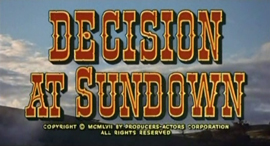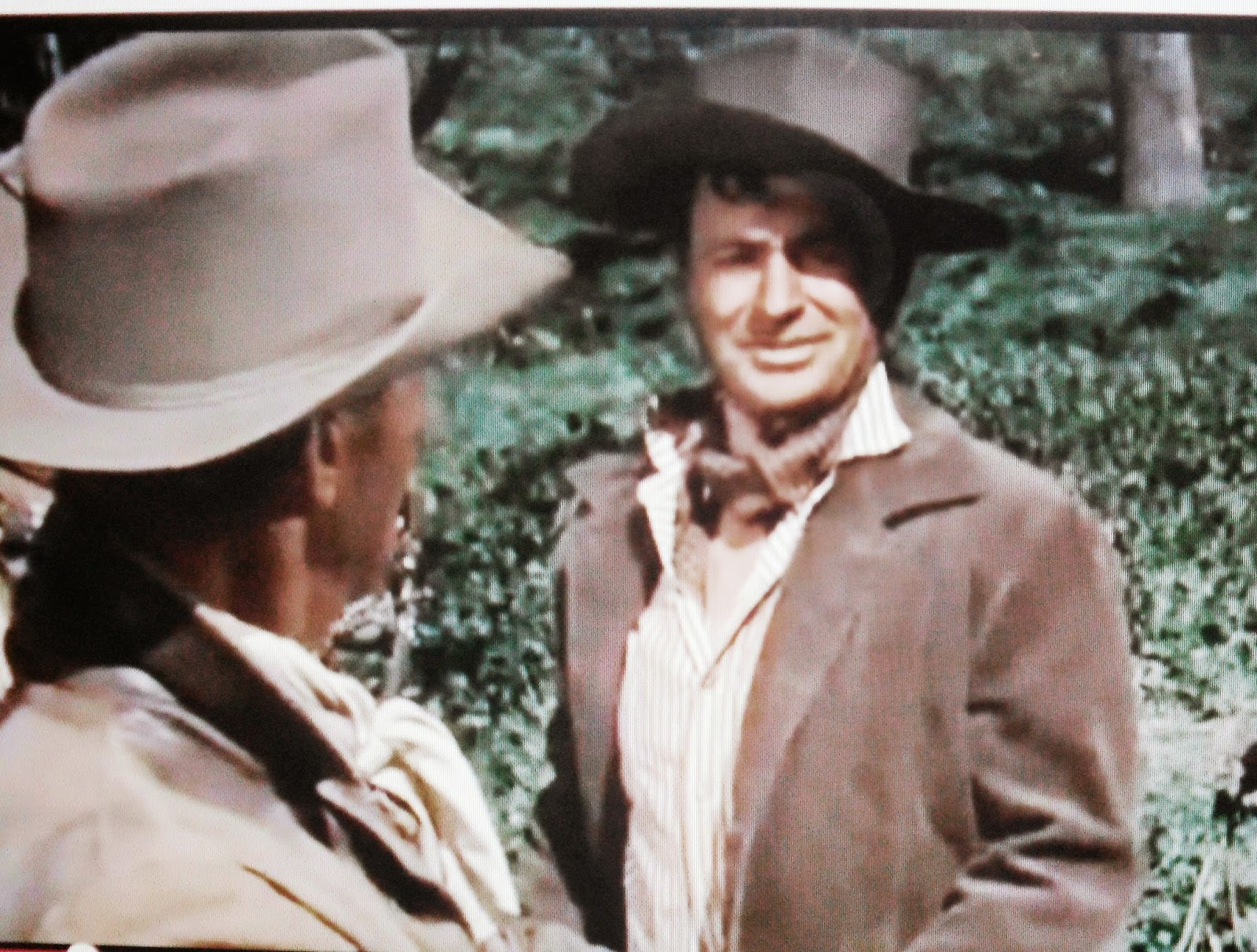Here I am again with another Randolph Scott western movie. This time he plays against type, though it took this viewer a while to realise that. The certainties of the western genre are used as a foil to go further and to go deeper.
Bart Allison (Randolph Scott), is slowly revealed to be a crazed obsessive who stubbornly persists in his destructive ways against all evidence and reason.

Moreover, it is also against genre since westerns invariable take place before a background of wide open spaces. Not so here, where nearly all the action is confined to one cramped interior.
But wait, there is more! It is also against type in the portrayal of the villain, Tate Kimbrough (John Carroll). He certainly seems to have the town under his thumb, but he seems to have accomplished that with some greasy charm, a wad of dosh, and veiled threats, nothing more. As it turns out, the villain is not guilty of the heinous crime, Allison supposes, but Allison will not hear the truth nor accept that exculpation, not even from his best friend, Sam, played by the ever-charming Noah Beery, Jr.

Only later does Allison seem, at least for a few seconds, to realise his colossal folly, but even then he persists in his mad quest for vengeance. This is one of Randolph Scott’s darkest role, made all the darker by the expectations audience bring to his films.
The counter point to Allison’s moral disintegration is the gradual moral reintegration of the town’s people to throw off the yoke of Tate Kimbrough. Shades of ‘High Noon’ (1952), though the threat there was far more visceral and immediate.
The town doctor is a one-man Greek chorus who comments on the folly around him without getting involved in it himself.
In the end there is mano-a-mano shoot-out in the great tradition of the western, but this one has a surprise result. The last line of the film from the doctor says it all. See the film to find out about both the surprise ending and the last line.
The cast is full of familiar faces from 1950s television from the sheriff to the bartender, the barber, the banker, and more.
It offers lessons for film makers any time. In less than 80-minutes we have an ensemble cast, vivid scenery, much debate, some soul searching by both Kimbrough and Allison, violent death, and true love.
There are plot holes here. In the first scene, why is Scott in the stage coach, and why is it necessary for him to stop it with threats to meet his partner? Why could he not get a horse and ride to the meeting? Or why could he not arrange for the stage driver to stop at the locale he wanted, and just get off? Perhaps his threats to stop the stage are meant to indicate just how unreasonable he is to become later.
In the town of Sundown, how did Tate Kimbrough establish his hold? What about him led the decent and upstanding Lucy (Karen Steele) to want to marry him? (There is no affinity between them in a few scenes they share.)
Skip to content
